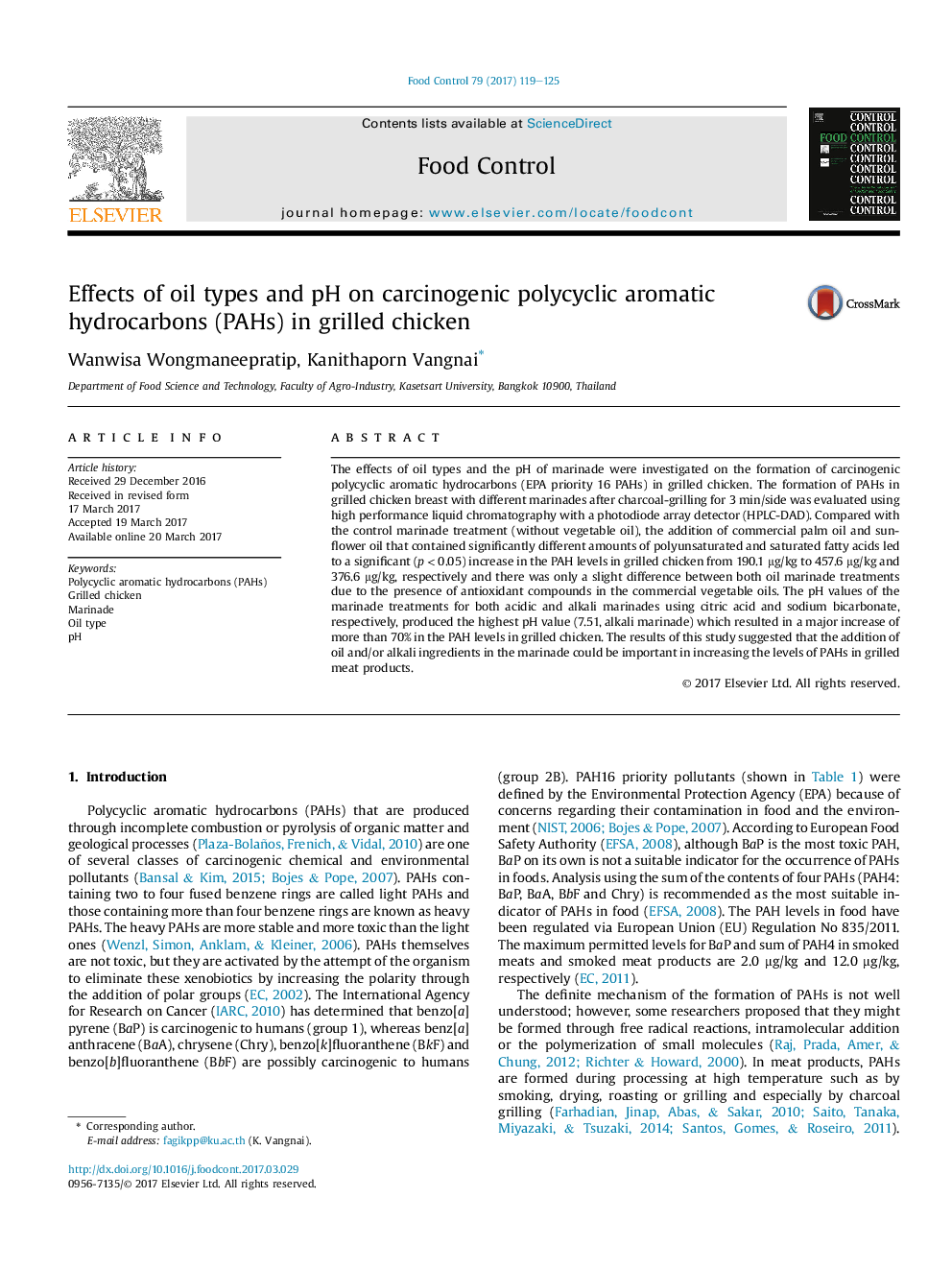| Article ID | Journal | Published Year | Pages | File Type |
|---|---|---|---|---|
| 5767440 | Food Control | 2017 | 7 Pages |
â¢Basic marinade (pH > 7.5) increased heavy PAHs more than 70%.â¢Benzo[a]pyrene increased more than 80% in basic marinade (pH > 7.5).â¢Addition of oils in marinade increased heavy PAHs, especially Benzo[b]fluoranthene.â¢Antioxidant compounds in oil played an important role on PAH formation.
The effects of oil types and the pH of marinade were investigated on the formation of carcinogenic polycyclic aromatic hydrocarbons (EPA priority 16 PAHs) in grilled chicken. The formation of PAHs in grilled chicken breast with different marinades after charcoal-grilling for 3 min/side was evaluated using high performance liquid chromatography with a photodiode array detector (HPLC-DAD). Compared with the control marinade treatment (without vegetable oil), the addition of commercial palm oil and sunflower oil that contained significantly different amounts of polyunsaturated and saturated fatty acids led to a significant (p < 0.05) increase in the PAH levels in grilled chicken from 190.1 μg/kg to 457.6 μg/kg and 376.6 μg/kg, respectively and there was only a slight difference between both oil marinade treatments due to the presence of antioxidant compounds in the commercial vegetable oils. The pH values of the marinade treatments for both acidic and alkali marinades using citric acid and sodium bicarbonate, respectively, produced the highest pH value (7.51, alkali marinade) which resulted in a major increase of more than 70% in the PAH levels in grilled chicken. The results of this study suggested that the addition of oil and/or alkali ingredients in the marinade could be important in increasing the levels of PAHs in grilled meat products.
